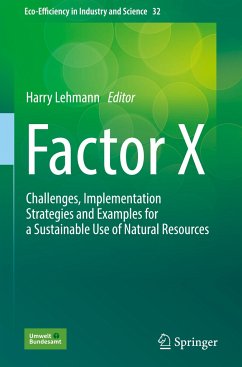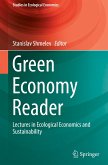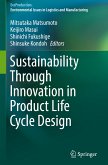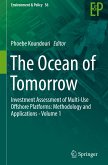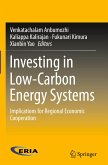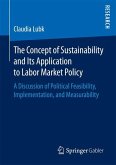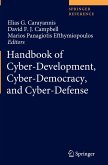This book describes and analyses necessities for a more resource-efficient world. It discusses solutions for a more sustainable use of natural resources, addressing decision-makers and experts from the fields of policy development, industry, academia, civil society, and the media. The book presents strategies, concrete ways and examples of achieving more sustainable resource use in practice.
Following on from two previous titles published on Factor X by the Umweltbundesamt (German Environment Agency), entitled "Factor X: Policy, Strategies and Instruments for a Sustainable Resource Use" (2013) and "Factor X: Re-source - Designing the Recycling Society" (2014), this book further investigates how savings in natural resources and resource efficiency improvements could be achieved, focusing on good practice examples that cover different resource categories, pursue different efficiency strategies and come from different sectors, e.g. innovative products or services, technology, man
agement approaches, systemic approaches, etc.
The background against which this work is done has a highly comprehensive span, from the first Declaration of the Factor X Club in the nineties, to the European Commission's Roadmap to a Resource Efficient Europe that was published in September 2011, through to the German Federal government's German Resource Efficiency Programme (ProgRess I and II) in 2012 and 2016, the G7 Alliance for Resource Efficiency, and most recently the development and implementation of the Sustainable Development Goals (SDG).
Following on from two previous titles published on Factor X by the Umweltbundesamt (German Environment Agency), entitled "Factor X: Policy, Strategies and Instruments for a Sustainable Resource Use" (2013) and "Factor X: Re-source - Designing the Recycling Society" (2014), this book further investigates how savings in natural resources and resource efficiency improvements could be achieved, focusing on good practice examples that cover different resource categories, pursue different efficiency strategies and come from different sectors, e.g. innovative products or services, technology, man
agement approaches, systemic approaches, etc.
The background against which this work is done has a highly comprehensive span, from the first Declaration of the Factor X Club in the nineties, to the European Commission's Roadmap to a Resource Efficient Europe that was published in September 2011, through to the German Federal government's German Resource Efficiency Programme (ProgRess I and II) in 2012 and 2016, the G7 Alliance for Resource Efficiency, and most recently the development and implementation of the Sustainable Development Goals (SDG).

